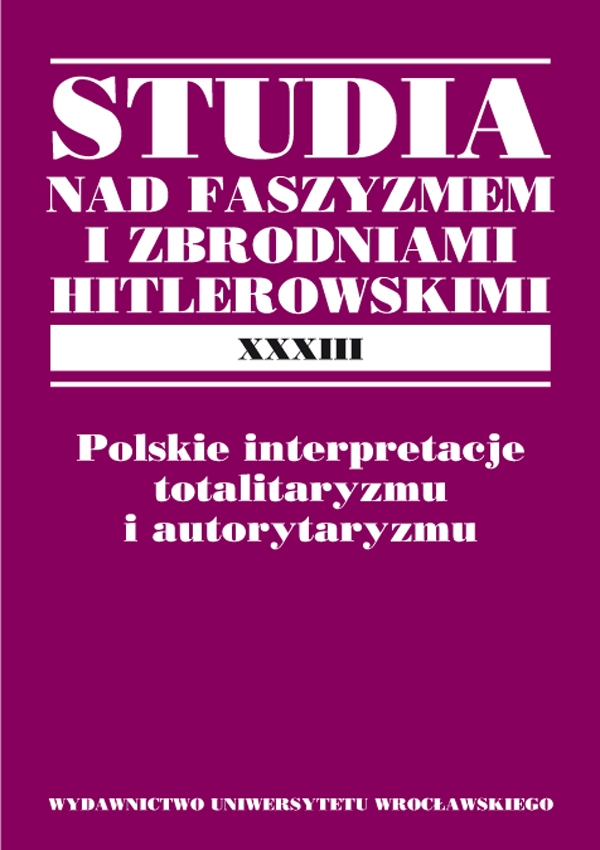

Artykuły

ITALIAN FASCISM IN THE INTERPRETATIONS OF POLISH SOCIALISTS 1922–1939
During the interwar period in the European states, the Apeninian Peninsula raised a particular interest among the continent’s inhabitants. It was a target of a well-developed tourist movement which was reinforced by religious and scientific-and-cultural motivations. For many intellectuals of various political persuasions, Italy — with its both ancient and Christian traditions — provided important mental stimuli. Apart from these elements, one additional significant factor appeared after 1922: the fascination and concern caused by the emergence of a new and previously unknown anywhere political phenomenon i.e. Italian Fascism. Polish publicists, politicians and lawyers also did not hesitate to offer their opinions on the shaping of Fascism in Italy. Moreover, in the Polish political, lawyerly and journalistic debate during the interwar period there appeared many — oftentimes quite penetrating and original — works interpreting both the ideology of Benito Mussolini and the practical operation of the system created by Il Duce. Among numerous political and legal interpretations of Italian Fascism, there also appeared studies and analyses made by Polish socialists who repeatedly vocalized their views on the issue in the press. The subject of this paper is the presentation of the opinions of Polish intellectuals of socialist provenance on the new political and social-andeconomic system introduced in Italy by Benito Mussolini. Describing the attitude of Polish socialists towards Italian Fascism, it has to be concluded that it was far more critical than the one exhibited by other political parties in the Second Polish Republic with the exception of communists. From the beginning Polish socialist movement considered Mussolini’s project as contradictory to democratic and parliamentarian principles and exhibiting clear ideological anti-socialist undertones. It is worth underlining that many of these interpretations — for instance the one proposed by Aleksander Hertz — were similar to the judgments made by the post-war researchers of totalitarianism.